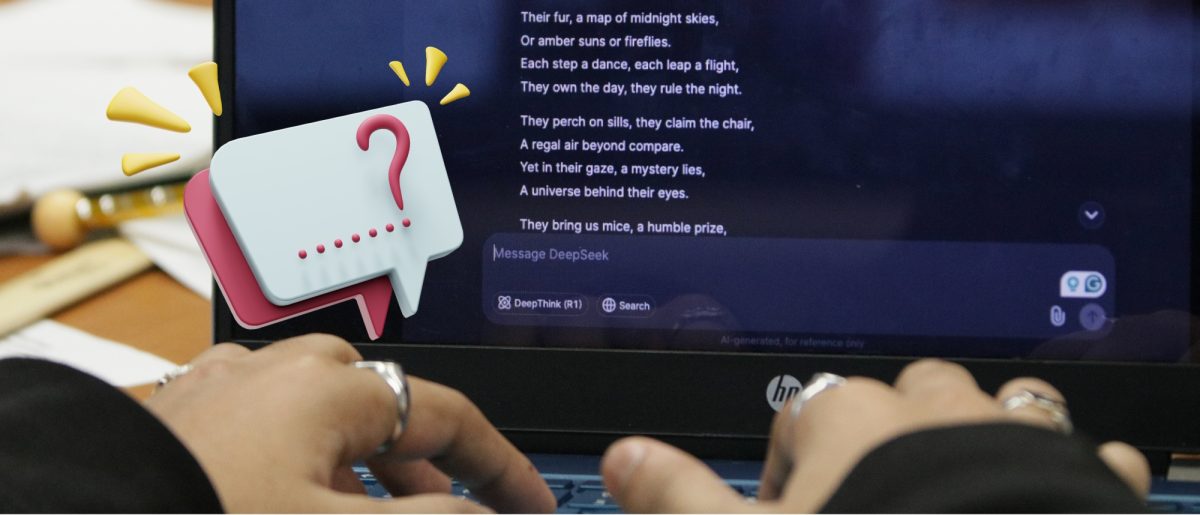As artificial intelligence continues to develop and grow, it becomes increasingly more complex, making it an invaluable tool across the world.
AI is currently being used in nearly every business sector of the U.S., with new advancements constantly making waves throughout the market, according to the Harvard Business Review. One clear example is the emergence of Deepseek AI, a Chinese-developed artificial intelligence developed at the fraction of the price compared to other large language models. This AI has had sweeping impacts across the industry, with companies leading the forefront of AI in the U.S. such as Nvidia losing nearly 20% of their stock price in little more than a day, according to CNBC
Rod Lamb, a department chair of Dallas College’s School of Engineering, Technology, Mathematics and Sciences, said this growth of AI is “really quite interesting how fast this technology has taken off.”
As a relatively new technology, it is becoming increasingly hard to regulate and explore the impacts it is having on the U.S. Lamb said: “It may be the greatest thing since sliced bread, Deepseek. It’s waiting to be seen how that goes.”
With such fast developments, concerns undoubtedly arise about AI’s access to sensitive information. Lamb said, “Apparently, it’s guardrails about what you can generate are not very tight, and people worry about information security.”
Investment into Deepseek has been one of the forefronts in terms of concerns, with the platform’s developers stating that roughly $6 million has been invested into Deepseek AI, according to a report by SemiAnalysis. Lamb said he does not “trust the Chinese numbers” and he was unsure if the Chinese government “considers what we consider to be private investors, or private companies.”
Compared to the hundreds of millions of dollars invested into American AI models, it is a stark contrast to other models on the market, with AI such as ChatGPT costing upwards of $500 million in investment alone, according to chief analyst Dylan Patel.
Lamb said, “Money is a bad way to look at this, as much as capabilities.” He added that the performance of the AI over time will determine its worth as time progresses.
AI is also rampant in the field of education, with many using its capabilities to gain an edge over their classmates, according to Lamb.
“Any professor who says their students aren’t using AI is dreaming, and I’ll look them in the eye and tell them that,” said Lamb.
Instead of talking about possible ways to prevent the use of AI, he mentioned how companies are now looking for employees with experience with AI, reasoning, “we can’t turn out graduates who know how to use AI if we don’t actually get to using it.”
Timothy Chan, a Richland professor, said that he firmly believes AI should be used in classes. “Personally, in my classes, I encourage the use of AI,” he said. “I actually have, in my syllabus, an AI use policy. It is encouraged that they use AI but they use it critically.”
As a technology professor, he has experience with these technologies and says students can use AI in class as a tool rather than a crutch. He further elaborates that to critically use AI would mean to “determine if the information presented makes sense.”
“Even if it makes sense, there are times without careful consideration it can give you a hallucinated response.”, said Chan.
A hallucinated response, Chan said, is a case in which “the AI believes very truly that it knows the answer, just like sometimes humans. We believe we know the answer on something, we answer with authority and with conviction and it could be a totally false statement…an example of AI hallucinating it can actually make up stuff such as book titles and things like that.”
While AI have the capacity to deliver false information and non-existent resources, Chan said he believes teaching people how to use AI is “similar to how people learn to use search engines. Those that have access and use it will be at an advantage and that’s why it’s imperative that everyone learns how to use it.”








